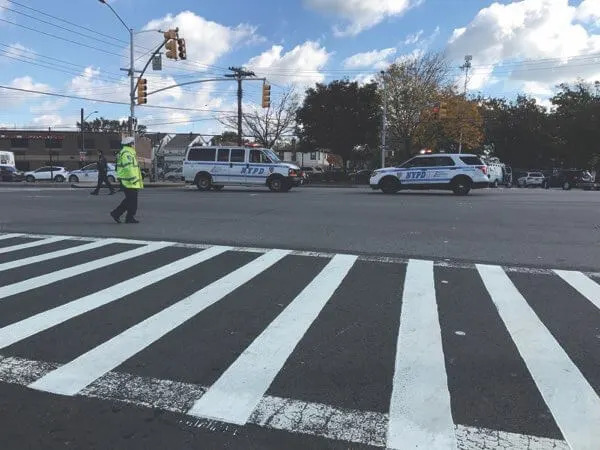By Phil Corso
Residents of Queens don’t need to look far for a close view of the changing climate. Warming temperatures have left educators and supervisors at Little Neck’s Alley Pond Environmental Center with no choice but to adapt.
“We’re living the consequences of climate change. There is proof the temperatures have been inching up,” said Dr. Aline Euler, education director at APEC. “The intensity of certain storms seems to be rising and I don’t think people are ready for it.”
After the National Oceanic Atmospheric Administration named last month the warmest March on record in both the state and country, Euler said educational programs at APEC have taken the wacky weather into account. A global warming program has been created and is available for teachers at the center to include in their sessions.
“We have to help people understand and take measures to lessen their carbon footprint,” Euler said. “Everybody has to help.”
Through the middle of April, long patches of heavy sun and little rain led to an increase in brushfires in nearby Long Island and New Jersey communities, destroying homes and injuring emergency responders. Educators at APEC recognized the greater risks of brushfires, Euler said, so much so that teachers started taking walkie-talkies out on nature walks with students as a precaution.
“We have to adapt how we operate with the changing weather,” Euler said.
Educator Dyan Freiberg said she has noticed differences in students’ behaviors while outside with her classes. Most notably, she said, pollen has become a more prevalent aspect of her daily routine.
“The kids’ allergies have been acting up more. I’ve never taken note of it like that before,” Freiberg said. “It somewhat scares me.”
The city’s 2011-12 winter was the second mildest in history, according to the NOAA, and educators at APEC said they noticed changes in the nature patterns they work in. According to Euler, patches of drought led to the shrinking of APEC ponds, dry soil making it difficult to plant new trees and different behavioral patterns in animals.
“The weather has made it hard for our animals,” Euler said. “The birds are returning earlier from migration, the plants are coming out earlier and it’s putting stress on our ecosystem.”
Freiberg said she tries to include environmentally friendly behaviors in her teaching plans despite feeling that much of the damage has already been done.
“I teach about climate change and what we can do to help slow the process,” Freiberg said. “I try to provide the students with information and just hope we teach a better lifestyle.”
But according to Euler, teaching APEC’s students about climate change is only a small step in the overall effort needed to lessen its effects.
“We have a chance to mention this to our kids, but it takes a lot of people to make a difference,” Euler said. “It unnerves me to see these changes in our weather patterns and everyone should try to pass on the message.”
Reach reporter Phil Corso by e-mail at pcorso@cnglocal.com or by phone at 718-260-4573.































